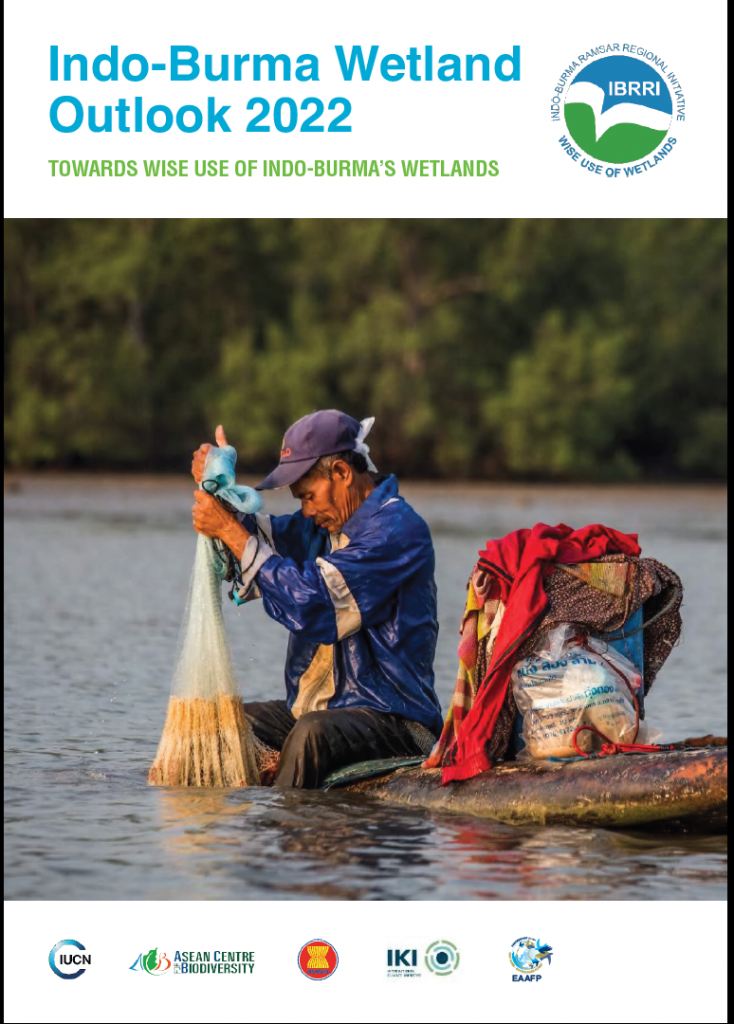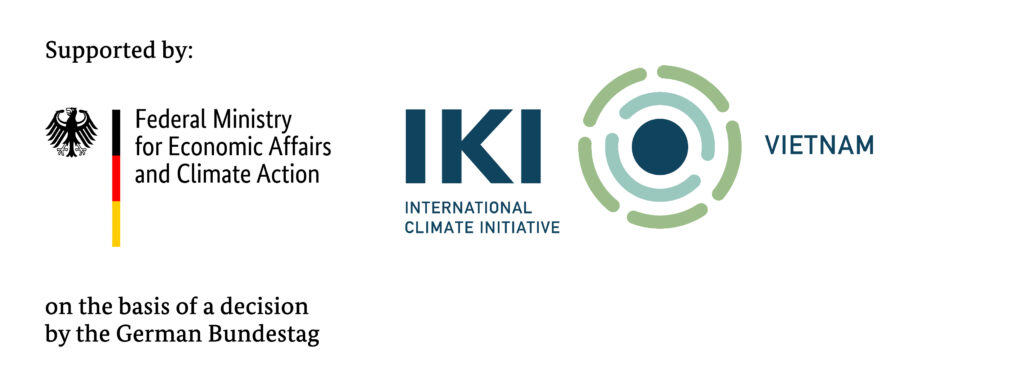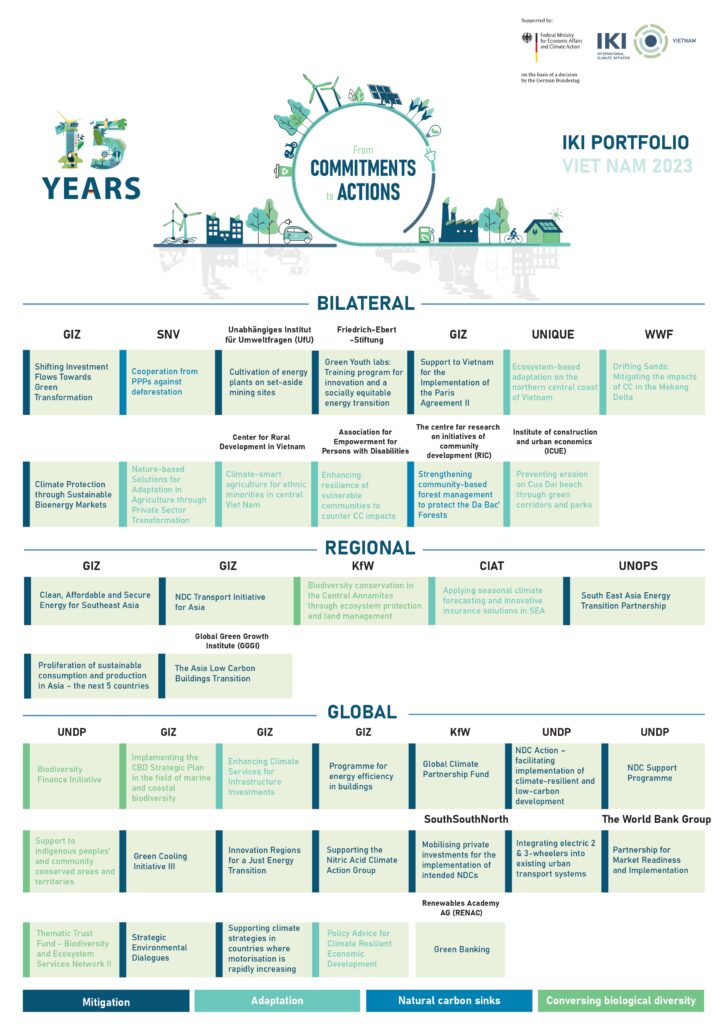
In the evolving landscape of global energy consumption, the demand for space cooling is steadily growing, constituting 16% of the final energy consumed by the building sector in 2020. Without proactive interventions, projections indicate a surge in both direct and indirect emissions from air conditioning and refrigeration. By the year 2030, these emissions are anticipated to escalate by approximately 37% above 2017 levels. Such a sharp increase not only poses environmental concerns but also presents significant cost implications for the power grid and the requisite power capacity.
In the tropical country of Viet Nam, a similar storyline is unfolding. The residential and commercial sector collectively account for nearly 30% of the final energy consumption, based on data from 2015. Within this sector, space cooling emerges as a notable contributor to energy consumption. Estimates suggest that space cooling activities already account for 40% of residential power demand. Likewise, in commercial and public services domains, space cooling constitutes a substantial portion, ranging between 25% to 40% of energy consumption.
Recognising the gravity of the cooling challenge, Viet Nam has taken a significant stride towards achieving its climate targets by engaging in the NDC Action Project. This initiative supported by IKI and the Kigali Cooling Energy Efficiency Programme (KCEP) and spearheaded by UNEP, aids ten partner countries, including Viet Nam, in translating their Nationally Determined Contributions into actionable strategies ready for implementation and financing. Within this initiative, each participating nation identifies two key sectors — one for adaptation and another for mitigation to concentrate on. In the case of Vietnam, the focus lies on urban cooling and enhancing climate resilience in the central coastal region. This initiative operates by bringing together expert groups dedicated to projects addressing these focal areas within each country. By striking a balance between international and local expert groups, it maximises the effectiveness of implementation efforts, ensuring that interventions are both globally informed and locally relevant.
With an aim to develop a comprehensive cooling strategy aligned with a vision extending to 2050, Viet Nam seeks to enhance the country’s resilience to extreme heat, reduce vulnerability, and minimize losses associated with its impacts, all while striving to achieve the ambitious goal of net-zero emissions.
 Joint Kick-off Workshop on Sustainable Urban Cooling in Viet Nam, May 2023
Joint Kick-off Workshop on Sustainable Urban Cooling in Viet Nam, May 2023
Within the framework of this project, two pilot cities, Can Tho and Tam Ky, have been chosen to undergo thorough urban heat analyses. These analyses aim to pinpoint challenges at various scales, including the city level, neighborhood level, and building level. Subsequently, tailored recommendations have been crafted to guide the implementation of sustainable cooling solutions. These recommendations cover a wide array of strategies, including urban planning initiatives, utilisation of passive cooling techniques, integration of nature-based solutions, enhancements in cooling equipment efficiency, and initiatives to shape consumer behavior.
For both pilot cities, a list of priority projects has been identified based on-site visits by experts, highlighting potential sites for the implementation of cooling solutions.
In parallel a comprehensive analytical report on policies and programmes concerning cooling was compiled, offering invaluable insights into the landscape of climate action. This was the culmination of an extensive urban cooling policy mapping exercise conducted at both national and pilot city levels, complemented by the gathering of international best practices in cooling solutions.
Following these activities, interactive workshops were conducted in both cities, bringing together relevant stakeholders from various departments, including natural resources and environment, construction, planning and investment, industry, and trade. The stakeholders convened to deliberate on policy mapping outcomes, prioritise project initiatives, and review the preliminary findings of heat analysis, fostering a collaborative environment conducive to informed decision-making and impactful action.
 Consultation Workshop in Can Tho, December 2023
Consultation Workshop in Can Tho, December 2023 Consultation Workshop in Tam Ky, January 2024
Consultation Workshop in Tam Ky, January 2024
The People’s Committee of each pilot city will select one project from the priority list to undergo a pre-feasibility analysis. Concurrently, innovative financial mechanisms are being explored to ensure the long-term sustainability and scalability of these vital initiatives. Additionally, the potential linkage of cooling solutions to a future carbon market is under analysis.
Overall, a concerted effort to address pressing climate challenges, a robust multistakeholder mechanism will be fortified and streamlined, bolstering collaborative endeavours towards sustainable development. Through rigorous capacity needs assessments and targeted training initiatives, efforts will be directed towards augmenting expertise and ambition in tackling climate-related issues.
If you want to know more about the project, please visit: NDC Action – facilitating implementation of climate-resilient and low-carbon development | Internationale Klimaschutzinitiative (IKI) (international-climate-initiative.com)
On the occasion of the International Women’s Day, the IKI funded project “NDC Transport Initiative for Asia (NDC-TIA)” would like to highlight some inspirational stories of Vietnamese women who have successfully overcome gender challenges to thrive in their careers in the male-dominated field, the transport sector. Their truly inspirational stories showcase that gender should never hinder anyone’s potential.
Together, let’s unite in our efforts to pave the way for a future where each individual, regardless of gender, gender identity, and sexual orientation, has equal opportunities to maximize their potential to foster a sustainable and inclusive world.
|
|
“Keep dreaming and dream big” Nguyen Thi Kim Lien Vice President of Da Nang City’s Association for Women Entrepreneurs Director of An Dien General Trading Company Limited Director of Michelin car tyres Service centre
|
| The Transport sector is open to individuals of all genders, not limited to men
Men enjoy greater benefits and more advantageous circumstances in the transport industry compared to women. Nevertheless, I firmly believe that when women set clear goals and are committed to achieving them, they can match and even surpass men. While our journey may not be as swift as that of men, I am confident that with determination, we will undoubtedly reach our destination. Personally, I am convinced that once I am resolute in following my chosen path, it will be a sustainable and fulfilling journey for me. Balancing the pressure As a female professional, I acknowledge the potential existence of workplace limitations. However, embracing the belief that no job is exclusively for either gender, I entered my profession with assurance and a positive attitude. Each passing day adds to my reservoir of knowledge and experience. Recognising the inevitability of pressure in this field, I approach it with a composed mindset, consistently seeking solutions to gracefully navigate challenges. I view pressure as a valuable tool for self-development, contributing to my maturity and resilience in the professional realm. ————————————————————————————————————— |
|
|
|
“Embrace and assert your identity” Ms. Nguyen Thi Cuc Professor at University of Transport and Communications (UTC) Head of Women Union, UTC Labour Union
|
| Turning challenges into opportunities
In today’s society, every woman has success, whether in raising children or in her career. Success is when one pursues a passion or simply overcomes oneself. To me, success is a journey, not a destination. If we treat it as a destination, we might lose the drive to keep pushing forward once we reach it. And challenges are part of that journey. Looking back on the paths I’ve taken, I realized that the difficulties I encountered were opportunities for me to affirm myself. I want to convey this message to all women: “Don’t see challenges as obstacles but rather as opportunities to explore your capabilities and assert yourself!” Honouring the contributions of individuals to society and the community Women today are increasingly empowered to pursue education and assert their positions in society. Many excel in fields previously assumed to be male-dominated, such as science, politics, etc. Therefore, I hope society will soon blur the gender lines because when it comes to professions, there should be no distinction between men and women. Let’s honour the contributions of individuals to society and the community. ————————————————————————————————————— |
|
|
|
“Perfection is not innate, but by consistently working towards personal growth, pushing past gender obstacles, we can attain meaningful outcomes, particularly for women.” Dr. Pham Thi Hue Professor at University of Transport and Communications
|
| The most fulfilling aspect of the current job
The most fulfilling aspect of my current job is teaching students majoring in Technology and Environmental Management, as well as students in engineering majors at the University of Transport and Communications. Engaging in this work not only helps nurture and equip students with knowledge and skills for environmental protection duties but also enables me to share invaluable insights gained from my engagement in local and global projects. This, in turn, contributes to the post-graduation development and resilience of my students. Women can overcome any obstacles to pursue their passions In contemporary society, women engage in both economic development pursuits and have a burden of managing households and caring for children. Nevertheless, this double burden does not imply that women are solely suited for less demanding administrative tasks and unsuitable for high-tech jobs. From my personal experience, I believe that with determination, effort, and proper training, women are entirely capable of excelling in roles demanding advanced technical expertise. ————————————————————————————————————— |
|
|
|
“Women, let’s keep moving forward” Phan Ngọc Bích Principal Official Legal – Science & Technology Department, Vietnam Register, Ministry of Transport
|
| The role of women in society is increasingly prominent
In the contemporary context, women are progressively establishing their presence and influence in society. There is a noticeable rise in the participation of girls in technical school entrance exams, indicating a growing interest in fields requiring advanced technical skills. Women are increasingly securing positions in professions demanding high technical expertise, as evidenced by numerous women holding managerial and technical roles within working groups at VAMA (Vietnam Automobile Manufacturers Association). Consequently, the outdated perceptions that associate women solely with manual or light administrative jobs and men exclusively with technical fields are no longer applicable in today’s socio-economic landscape. Moreover, our policy framework emphasizes gender integration in the development of legal norms, underscoring the commitment to achieving gender equality goals. Pursuing your dream career As you embark on the path to your dream job and encounter gender obstacles, keep in mind that it’s a challenging journey, yet it presents an opportunity for personal growth and self-validation. Have confidence in your capabilities and refuse to be hindered by gender stereotypes. Establish definite goals and persist in their pursuit, regardless of the challenges that may arise. Continuously strive to enhance your professional skills and simultaneously cultivate a social network, aligning with individuals who share your vision to enrich your journey. Embracing risks and pursuing your aspirations can lead to success in your career. Subsequently, challenges will serve as motivation, propelling you to seize additional opportunities in the future. Bear in mind that breaking through gender barriers requires patience and unwavering determination. Pursue long-term goals that ignite your passion, enabling you to discover your authentic self within your chosen career path. |
|
If you want to know more about the project, please visit: NDC Transport Initiative for Asia | Internationale Klimaschutzinitiative (IKI) (international-climate-initiative.com)
Hydrofluorocarbons (HFCs), the synthetic gases commonly used in cooling and refrigeration, are a rapidly growing source of greenhouse gas emissions, contributing to global warming. To address this, natural refrigerants like carbon dioxide, hydrocarbons, and ammonia offer sustainable alternatives with zero or minimal global warming potential.
In September 2019, Vietnam ratified the Kigali Amendment to the Montreal Protocol, committing to phasing down HFCs by 80% by 2045, starting in 2024. To support Viet Nam in this transition of promoting the use of natural refrigerants and energy efficiency, the Green Cooling Initiative (GCI) project, financed by the International Climate Initiative (IKI) has implemented different interventions centered around three main areas: policy advise, technology transfer and capacity building.
As part of its capacity-building activities, the project recently organized a series of hands-on training courses on Green Cooling Approach and Safe Use of Natural Refrigerants. With the focus on developing practical skills for the safe handling of natural refrigerants, particularly R290 in refrigeration appliances, the programmes were to provide skill-based practices to trainees, improving both their technical and tactical skills. Besides knowledge sharing session about international and national management policies on phasing out ozone-depleting substances, technical practices on four main skills such as: (i) Tool Proficiency, (ii) Pipeline Operator, (iii) Substance Recovery and (iv) Weldless pipe connection technique were well developed to properly perform diverse specific tasks and tools.
 Students are using the refrigerant recovery machine in the practical session ©HCEET
Students are using the refrigerant recovery machine in the practical session ©HCEET
From October 2023 to March 2024, four practical training courses were conducted at the Hanoi College of Electronics and Electro-refrigeratory Technics (HCEET) and the Hanoi Industrial Vocational College. Each course enrolled 15 students, including vocational trainers, trainees, and practitioners in the cooling sector. The training aimed to provide professionals with the opportunity to enhance their expertise in green cooling technologies. Given the inevitable trend towards green transformation, there has been a significant demand for skilled workforce in sustainability practices, particularly in urban areas.
The training received positive feedback and high ratings from all participants. The program covered key areas such as environmental issues, standards, and safety measures for the use of hydrocarbons, leak detection, and the application of propane (R290) as a refrigerant, aligning well with their expectations and career aspirations. Many recommendations for expanding similar training programs to other vocational colleges and universities were made by both trainees and trainers.
“As the planet continues to warm, refrigeration equipment plays a crucial role across various sectors. Consequently, safety has become more critical than ever. Governmental agencies such as MONRE anticipate close and intensive collaboration with our international partners and vocational colleges to offer more training courses in the near future. This will undoubtedly contribute to meeting the demands of the future market,” shared Ms. Nguyen Dang Thu Cuc, National Ozone Office Coordinator at the Department of Climate Change, Ministry of Natural Resources and Environment.
 Closing ceremony at Hanoi College of Electronics and Electro-refrigeratory Technics (HCEET) ©HCEET
Closing ceremony at Hanoi College of Electronics and Electro-refrigeratory Technics (HCEET) ©HCEET
Furthermore, the cooling sector has traditionally been perceived as male-dominated. To promote greater participation of women in this field, the organizers of the training are keen to tailor vocational programs to better accommodate female participants. The inclusion of female professionals in the Training of Trainers (ToT) course held in March was widely acknowledged and valued. Moving forward, the GCI 3 project aims to actively promote gender mainstreaming across all its interventions and activities.
 Students of the Training to Trainers programme in March 2024 ©GIZ
Students of the Training to Trainers programme in March 2024 ©GIZ
If you want to know more about the project, please visit: Green Cooling Initiative III | Internationale Klimaschutzinitiative (IKI) (international-climate-initiative.com)
Ha Noi, 23 March 2024 – Thousands of citizens, businesses, and organisations gathered on the pedestrian street around Hoan Kiem Lake to participate in the event “Clean Energy – Crafting A Green and Sustainable Future”, in response to the Earth Hour 2024 campaign. This annual event plays a significant role in raising community awareness about energy conservation, promoting the use of clean energy, and protecting the environment.
 Representatives of central, local authorities and businesses at the event. Photo credit: GIZ
Representatives of central, local authorities and businesses at the event. Photo credit: GIZ
The event “Clean Energy – Crafting A Green and Sustainable Future” is organised by the “Clean, Affordable and Secure Energy for Southeast Asia” (CASE) Project sponsored by the German Federal Ministry for Economic Affairs and Climate Actions (BMWK) through the International Climate Initiative (IKI), in coordination with the People’s Committee of Hoan Kiem District, the Viet Nam Electricity Group, and Hanoi Power Corporation. Aimed at the Net Zero target by 2050, the event features various creative and meaningful activities.
In his opening speech, Sven Ernedal, Acting Programme Director emphasised the importance of promoting and raising awareness within the community about energy efficiency and clean energy usage. Sven shared, “We are very happy to see many people coming over and join us. We believe that renewable energy is the key to unlocking a green and sustainable future, with green hydrogen emerging as a new energy source, significantly contributing to carbon emission reduction. We can produce clean hydrogen by harnessing the potential of renewable energy sources such as solar and wind energy. This environmentally friendly energy source can bring about positive changes and shape a brighter future for the next generations”.
Highlighting the importance of promoting energy efficiency, Trinh Hoang Tung, Vice Chairman of the Hoan Kiem District People’s Committee, Ha Noi, expressed his hope that the community, especially enthusiastic young people, would actively participate in and expand meaningful activities and spread the message of the Earth Hour campaign to those around. Through such efforts, in 2023, energy savings throughout Hoan Kiem District exceeded 14 million kWh. In 2024, the district aims to achieve energy savings of 1.6% – 1.8% compared to the forecasted energy demand, with a minimum saving of 2.2% of total electricity consumption for consumption areas within the area. Tung emphasised, “Economically and efficiently using the existing energy sources while transitioning from traditional energy sources to renewable, affordable, and secure energy sources is becoming increasingly imperative. To achieve this, concerted efforts are needed from relevant agencies, businesses, individuals, communities, and especially the younger generation.”
One of the unique aspects of the event is the active participation of experts from departments, industries, businesses, research institutes, and universities. Representatives from these entities shared detailed information about the energy sector, providing a comprehensive view of how we can use renewable energy and energy efficiency in our daily lives.
 Vo Quang Lam, Deputy General Director of EVN, brought valuable insights into energy efficiency and energy saving to the event. Photo credit: GIZ
Vo Quang Lam, Deputy General Director of EVN, brought valuable insights into energy efficiency and energy saving to the event. Photo credit: GIZ
In recent years, The Viet Nam Electricity (EVN) has been consistantly taken a leading role in response to Earth Hour initiatives. Mr. Vo Quang Lam, Deputy General Director of EVN, brought valuable insights into energy efficiency and energy saving to the event. “When everyone understands that our power sources are limited, everyone joins hands to build an electricity-saving society not only to overcome current difficulties but also for a brighter future, sustainable energy security for the country, I am confident that you will have your own way every day to save and maintain this good habit for a sustainable future for yourself, your family and your society”, Lam affirmed.
“We cannot deny the significant role of applying science, technology, and innovation in the progress towards efficient and sustainable energy use. From changing household habits to optimising production processes, scientific and technological advancements provide solutions to minimise energy consumption and promote sustainability”, said Ms. Tran Thi Hong Lan, Deputy Director of the State Agency for Technology and Innovation, Ministry of Science and Technology.
“In the context of the world’s energy resources being gradually exhausted and the environment being polluted, the use of clean energy, energy saving and efficiency, requires the cooperation of the entire society, from the specific actions of each individual, each household, each business and community. What we need to aim for is not just saving electricity and protecting the environment for an hour, but building a conscious, responsible lifestyle throughout 365 days, so that every hour of the year is an “Earth Hour”. Nguyen Xuan Thang, Member of EVNHANOI’s Board of Directors emphasized.
The exhibition booths at the event attracted considerable attention from visitors. Businesses and organisations introduced new technologies and products, reaffirming their commitment to the development and promotion of clean energy.
 Families enjoy tree planting to “green” the Earth. Photo credit: GIZ
Families enjoy tree planting to “green” the Earth. Photo credit: GIZ
Moreover, the event featured interactive activities with the community, such as tree planting to “green” the Earth, exploring fascinating renewable energy technologies at booths, and participating in waste collection, sorting, and recycling. Games and activities aimed at enhancing awareness of clean and efficient energy technologies created a lively and vibrant atmosphere. The highlight of this event was the painting “Crafting a Green and Sustainable Future”. This artwork reflects the community’s commitment to environmental protection and sustainable energy use. Created by a group of artists and event participants, especially children, the painting not only showcases creativity but also conveys profound messages about love and responsibility for the environment.
 Children’s painting on “Crafting a Green and Sustainable Future. Photo credit: GIZ
Children’s painting on “Crafting a Green and Sustainable Future. Photo credit: GIZ
“We are honoured and delighted to have the opportunity to collaborate with GIZ ESP in organising this meaningful event”, shared Pham Gia Phong, an artist involved in painting the artwork. “The painting is not just a piece of art but also a way for us to convey the message about the importance of environmental protection and building a green future for the next generation”, Phong added.
The painting “Crafting a Green and Sustainable Future” was exhibited on the pedestrian street around Hoan Kiem Lake during the event, creating a focal point and reminding everyone of the importance of taking action to protect the environment.
If you want to know more about the project, please visit: Clean, Affordable and Secure Energy for Southeast Asia (CASE) | Internationale Klimaschutzinitiative (IKI) (international-climate-initiative.com)
The development, testing, and application of a new tree-planting monitoring app enables efficient data collection, monitoring, and reporting. Thus, it also allows for continuous learning and improvement of forest restoration strategies.
Coastal forests in Viet Nam, including mangroves and forested sand dunes, serve as crucial protection against extreme weather, erosion, and salinisation. These habitats also provide further ecosystem services to local communities and native biodiversity. After having experienced decades of degradation, the importance of restoring coastal forests for mitigating and adapting to climate change is now widely recognised. The areas in need of restoration is estimated to be 500,000 hectares along the country’s 3,200-kilometer coastline.
In this context, the IKI-funded project “Ecosystem-based Adaptation on the Northern Central Coast of Vietnam: Restoration and Co-management of degraded dunes and mangroves” was initiated in 2018. The project has developed a scalable proof-of-concept of restoring degraded coastal forests with native site-adapted tree species while working in partnership with local communities.
Now entering its final stage, the project will have produced more than 700,000 seedlings from over 20 different native species. This seedling production has helped to gather knowledge on the collection, production, and planting of these species which otherwise would have been lost. The seedlings have been planted in mixed-species clusters of 9-12 trees, mimicking natural growth patterns, across 450 hectares of severely degraded coastal dune forests in the three project provinces: Thua Thien Hue, Quang Tri, and Quang Binh.
The pilot sites have been heavily affected by typhoons, drought, and heat waves. Many lessons on how to further improve the approach have been learned and incorporated in the design, especially the focus on high-quality seedling production in the project’s partner nursery in Cam Lo/Quang Tri province. For an efficient monitoring and site-adapted selection of tree species in future projects, it is very important to have robust and timebound information on survival rates and success of the restoration effort.
To ensure accurate, reliable, and accessible tracking of key data on the restoration approach, a new monitoring app was launched in March 2024. The app launch involved in-the-field testing and detailed training with project staff. From this starting point, baseline data collection has begun and will continue to be rolled out over the entire project area in the coming months. The roll-out will be accompanied by capacity-building measures on community-based monitoring.
 Figure 1: Nursery staff caring for seedlings in the project’s best practice nursery, Cam Lo (Photograph by Ho Ngoc Anh Tuan, 2023)
Figure 1: Nursery staff caring for seedlings in the project’s best practice nursery, Cam Lo (Photograph by Ho Ngoc Anh Tuan, 2023)
Following the baseline development, during which all planting clusters are being mapped, key metrics will be collected on a randomly selected sample of 10% of the clusters in each specific site. Such metrics include any specifics to the planting approach, the mix of species, variations in site conditions and the height and overall health of each individual seedling. The sample clusters will have these metrics tracked at regular intervals to monitor overall trends.
Through consistently collecting and analysing data on the project’s performance, the new app will facilitate ongoing learning and further refinement of the project’s coastal forest restoration approach. These insights will directly influence the projects’ future activities and efforts for upscaling in similar projects, such as the number and species of seedlings to be produced in the native tree species nursery in Cam Lo. With access to detailed species data, the best practice nursery can also adapt its processes to refine the treatment of seedlings during the production phase, further enhancing their performance in the field.
 Figure 2: A member of the project team logs key data into the app interface (Photograph by Ho Ngoc Anh Tuan, 2024)
Figure 2: A member of the project team logs key data into the app interface (Photograph by Ho Ngoc Anh Tuan, 2024)
The app was designed to be user-friendly and easily accessible. Project staff can download the app onto their smartphone and data can be easily uploaded and downloaded from the database, facilitating real-time syncing of monitoring from different data collectors in the field. The app is currently intended for use by trained project staff but sets the foundation for further app developments that could facilitate community-based monitoring for future projects.
 Figure 3: Clusters of native species seedlings planted by the project (Photograph by Ho Ngoc Anh Tuan, 2024)
Figure 3: Clusters of native species seedlings planted by the project (Photograph by Ho Ngoc Anh Tuan, 2024)
If you want to know more about the project, please visit: Ecosystem-based adaptation on the northern central coast of Vietnam: restoration and co-management of degraded dunes and mangroves | Internationale Klimaschutzinitiative (IKI) (international-climate-initiative.com)
Marginalisation of Ethnic Minorities and Deforestation in the Central Highlands of Vietnam
In Vietnam’s Central Highlands, the K’Ho ethnic minority people have cared for the forests for generations, practicing nomadic upland cultivation—a traditional method involving field rotations within a forest in order to sustainably manage natural resources.
But as they are relocated from forests to residential areas, admid the turbulence of climate change, they face a completely new set of challenges known as “fixed” farming. Fixed farming involves permanently allocating land for cultivation. Without sustainable practices, the shift to intensive farming can reduce the opportunities for soil to rest or regenerate naturally.
This expansion of such coffee production is a major catalyst for land-use change, resulting in the loss and degradation of forested areas.
Even more alarming, the grip of intensive farming ravages the soil, unleashing a torrent of erosion and stripping away vital nutrients. Not to mention how the heavy use of chemicals from these farms poisons rivers, eventually jeopardising the local food security and putting the local economy at risk.
All of which pose additional challenges for the K’Ho community, who has been unfamiliar with new practices that fit the demand of global coffee market. In order to be resilient to the price fluctuations in such a demanding market, coffee farmers must be able to diversify their livelihoods and income sources while practicing high-quality coffee production.
Those who fail to follow new sustainable practices might face inequalities in the field, which can extend the damage to equitable forest restoration efforts.
The Need for Equitable Participation and Influence in Restoration Interventions
Inequalities in forest and landscape restoration efforts can exacerbate social disparities and hinder effective collaboration to prevent deforestation and forest degradation which can have repercussions on the health of our ecology and communities.
Not only that, marginalised communities risk losing cultural heritage and traditional knowledge due to exclusion from decision-making processes in forest restoration initiatives.
Addressing these inequalities requires inclusive approaches that prioritize the voices and needs of marginalised communities, ensuring equitable access to resources, decision-making processes, and opportunities for meaningful and incentivised engagement in these initiatives.
Within this context, Café-REDD, an SNV project funded by the German Federal Ministry for Environment, Nature Conservation and Nuclear Safety (BMUV), following the governmental policies on new rural development and forestry, is collaborating with the K’Ho to revive the forest landscape.
To achieve this, Café-REDD involves diverse stakeholders, ensuring marginalized groups aren’t passive beneficiaries but active stakeholders throughout the design and implementation process of the project.
By recognizing and addressing their unique needs, including gender considerations, Café-REDD is seizing opportunities to promote social inclusion and avoid perpetuating inequalities by employing an intersectional approach.
 Figure 1. Different direct and indirect mechanisms to ensure social inclusion in forest and landscape initiatives.
Figure 1. Different direct and indirect mechanisms to ensure social inclusion in forest and landscape initiatives.
Case Study: K’Ho Female Farmers Diversifying Livelihoods with Traditional Wisdom
Why does it matter to involve K’Ho women in restoration efforts?
In K’Ho society, gender roles are closely linked to their unique cultural practices. Their administrative setup, called bòn, shows a system where women have a lot of power and influence. In families, women are highly respected and have important roles in making decisions about big events like weddings and funerals.
The involvement of K’Ho women in decision-making for their families and community is crucial for Café-REDD, as it guarantees that restoration efforts involving active participation of women are in harmony with the needs and priorities of their community.
To promote income-generating opportunities among these targeted communities, one of Café-REDD’s achievements is to support the establishment of 10 off-forest farm livelihood models.
A successful example of this case is how K’Ho women at Café-REDD are leading and reviving an alternative livelihood: making straw wine.
Finding the Suitable Alternative Income as an Indirect Approach to Prevent Deforestation
Straw wine, a traditional beverage crafted by the K’Ho community, is a cultural emblem passed down through generations, often led by K’Ho elderly women. Made from fermented rice, it undergoes an intricate production process where the ingredients are wrapped in straw and left to ferment. Traditionally used for ceremonial occasions and social gatherings, straw wine holds deep cultural significance and serves as a testament to the community’s connection to the land and its resources.
Yet, recent years have witnessed the erosion of making straw wine culture due to socioeconomic changes and shifts in livelihood.
Café-REDD recognizes the potential to encourage the sustainable involvement of the K’Ho community in forest and landscape restoration efforts by helping them develop alternative sources of income, one of which is making straw wine.
The project has brought together a group of diverse K’Ho members, including elderly individuals who have retained the traditional knowledge of straw wine-making and younger women who are enthusiastic about learning and adapting to modern demands. With initial funding, the group acquired essential ingredients and containers, while also receiving training in marketing and accessing markets to expand their customer base.
 Figure 2. K’Ho straw-wine making group at Café-REDD.
Figure 2. K’Ho straw-wine making group at Café-REDD.
Although the K’Ho community upholds a matriarchal structure, it’s vital to acknowledge that women still bear a significant portion of the labour division, which may amplify the burden of pursuing alternative sources of income.
To address this concern, the project meticulously consulted with K’Ho members to understand their needs, integrating their insights, experiences, and knowledge into the initiative. According to feedback from K’Ho communities involved with Café-REDD, the process of making straw wine does not overly encroach on their farming and household responsibilities.
The fermentation process requires only 2-3 days per month, with the wine ready for sale after 6 months, thus fitting seamlessly into their schedules. Women primarily oversee the wine-making recipe, while men assist in sourcing straws and preparing additional ingredients, ensuring a collaborative approach that fair work division within the community.
“Before, we only sold our straw wine within our village, but now we’re reaching tourist destinations, and orders are coming in from different cities. This extra income benefits our households, but what’s truly special is how it’s brought us closer together, especially among the older female members and the rest of the community”, said R’ Ong K’ Chuong, the female head of the straw wine making group.
Next Steps to Improve Equitable Opportunities for Marginalised Groups
It takes a collective effort from various stakeholders to ensure that our forest and landscape restoration initiatives prioritise equity and amplify the voices of marginalised communities. In order to effectively address the needs of communities and genders at project sites, it is crucial to involve a diverse range of actors including governments, programme developers, researchers, and gender specialists in tailoring solutions and interventions.
In line with the new gender strategy of IKI, our projects aim for a more transformative approach towards gender to promote fairness and equality for all individuals, regardless of their gender identity or expression.
If you want to know more about the project, please visit: Cooperation from PPPs against deforestation in Vietnam | Internationale Klimaschutzinitiative (IKI) (international-climate-initiative.com)
IKI Project News
In the evolving landscape of global energy consumption, the demand for space cooling is steadily growing, constituting 16% of the […]
On the occasion of the International Women’s Day, the IKI funded project “NDC Transport Initiative for Asia (NDC-TIA)” would like […]
Hydrofluorocarbons (HFCs), the synthetic gases commonly used in cooling and refrigeration, are a rapidly growing source of greenhouse gas emissions, […]
Ha Noi, 23 March 2024 – Thousands of citizens, businesses, and organisations gathered on the pedestrian street around Hoan Kiem […]
IKI-Newsletter
Keep up with our latest news and events. Subscribe to our newsletter.
Climate News In Viet Nam
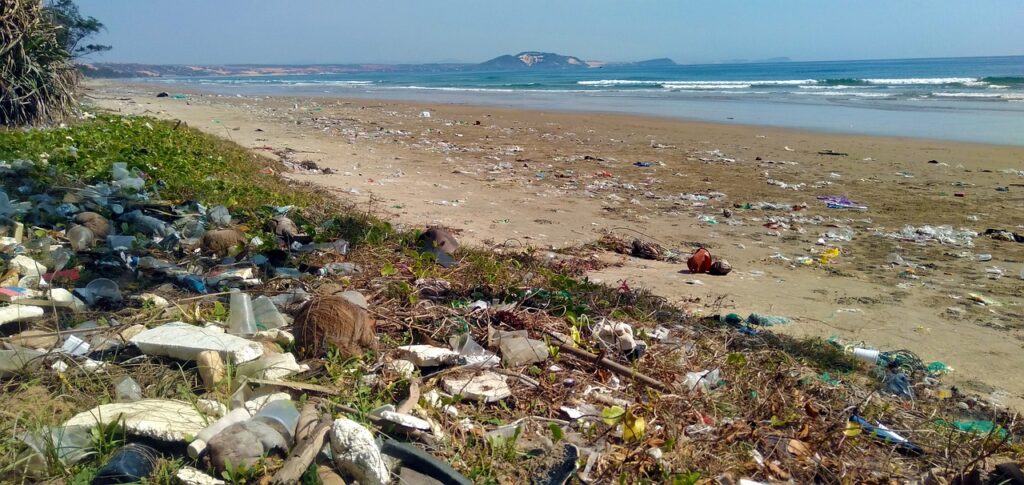
Vietnam, boasting an extensive coastline, is naturally endowed with favorable conditions for tourism and coastal and marine economic development. However, […]

On 9th March, Ministry of Agriculture and Rural Development (MARD) announced the project on infrastructure and technical support for low […]

Multi-use forest management serves diverse purposes and benefits beyond timber by integrating different dimensions such as: environment, economy, culture, and […]
Events
The IKI Viet Nam Gender Community of Practice (CoP) was established at the annual IKI Workshop in September. To officially […]
Berlin meeting room, GIZ Viet Nam office, 6th floor, 49 Hai Ba Trung Street, Hanoi.
Berlin meeting room, GIZ Viet Nam office, 49 Hai Ba Trung Street, Hanoi
Berlin meeting room, GIZ Viet Nam office, 49 Hai Ba Trung Street, Hanoi
Berlin meeting room, GIZ Viet Nam office, 49 Hai Ba Trung Street, Hanoi
Recent Publications
The IKI aims at implementing a gender-responsive approach to project planning and implementation to prevent gender-based discrimination and achieve gender justice. At the core of many IKI projects is the hosting of events to enable knowledge exchange, conduct trainings or to support policy makers in the field of climate action, adaptation to climate change and biodiversity conservation. Considering that those topics are not gender neutral, the aim of gender-responsive event management is to achieve not only numerical gender parity an inclusive environment for transformational exchange that is just and sustainable. This starts by connecting the event topic to gender, including more women and non-conforming gender identities as speakers, to planning an inclusive event that considers different needs of participants.
The following checklist offers IKI projects tested practical examples and a suggested step-by-step approach to gender-responsive event management: Why do we need Gender-Responsive Event Management (GREM) in IKI Projects?

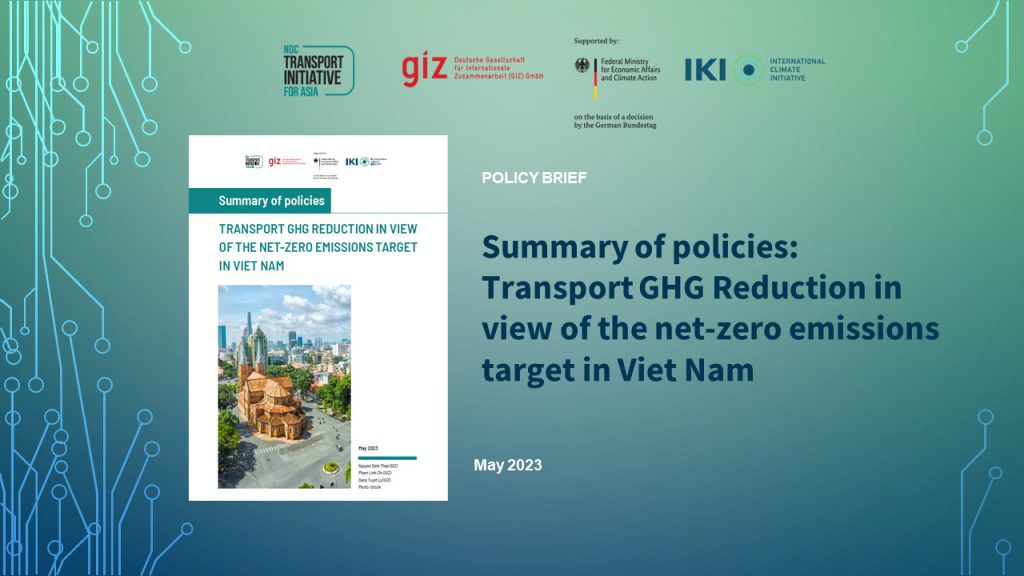
The global energy transition from coal to renewable energy will have economic and social effects in coal regions in developing and emerging countries, threating local livelihoods, economic activities, and jobs, but also holding opportunities for sustainable, low-carbon development. Regional decision-makers play an important role in steering the transition and developing locally adapted solutions, but often lack capacity and knowledge of how to best support the transition process.
Against this background, the Wuppertal Institute has developed the Just Transition Toolbox for coal regions, a comprehensive compendium of experiences and good practices with references and links to existing handbooks, tools, and guidelines. It builds on the previous work of the Secretariat of the EU Initiative for Coal Regions in Transition (CRIT) and vast knowledge from a diverse range of stakeholders across the globe.
The Wuppertal Institute (Germany) aims to support the capacity building to coal regions worldwide with the “Just Transition Toolbox for coal regions”, which comprehensively illustrates the challenges and opportunities of a sustainable transition for a global audience.

Comprehensive Guidance
The Just Transition Toolbox is an exceptional compendium of experiences, good practices, and resources that encapsulates the complexities and potential of sustainable transitions. Its content is bolstered by references and links to existing handbooks, tools, and guidelines, providing decision-makers and practitioners with a wealth of knowledge and practical insights. Whether it’s strategy development, recommendations for governance structures, sustainable employment, technology options, or environmental rehabilitation, the toolbox covers all facets of a just transition.
Global Perspective and Collaboration
One of the standout aspects of the Just Transition Toolbox is its global perspective. By building on the previous work of the Secretariat of the EU Initiative for Coal Regions in Transition (CRIT) and leveraging knowledge from diverse stakeholders worldwide, the toolbox offers a holistic and inclusive view of the challenges and opportunities confronting coal regions. This global collaboration ensures that best practices and lessons learned from different regions are shared, fostering innovation and empowering decision-makers with a comprehensive understanding of the transition process.
Capacity Building and Knowledge Sharing
The Just Transition Toolbox serves as a vital resource for capacity building in coal regions across the globe. Its user-friendly format and accessible language make it an invaluable tool for decision-makers who often lack the necessary expertise and knowledge to steer sustainable transitions. The toolbox enables knowledge sharing among practitioners and experts, providing a platform for exchanging insights, addressing concerns, and promoting dialogue. This collaborative approach fosters a sense of community and encourages shared learning, enhancing the effectiveness of transition strategies.
Applicability to Regional Contexts
One of the key strengths of the Just Transition Toolbox is its adaptability to various regional contexts. The toolbox’s insights and recommendations can be tailored to specific coal regions, considering their unique challenges, resources, and social dynamics. By highlighting country-specific experiences and lessons learned, decision-makers can draw inspiration from successful transition initiatives, adapt strategies to local conditions, and maximize the positive impact on their regions.
Download “Just Transition Toolbox for coal regions” at: Home | Just Transition Toolbox for Coal Regions (coaltransitions-toolbox.org)

The Indo-Burma Wetland Outlook (IBWO) is the first synthesis of the status and trends for wetlands across the five countries of the region namely, Cambodia, Lao, Myanmar, Thailand and Viet Nam.
Together with rain forest and coral reefs, wetlands are one of the most productive habitats in the world that plays an important role in water quality improvement, erosion control, flood reduce, surface and groundwater protection. However, due to overexploitation of natural resources, unsustainable agricultural practices, urbanization and rapid economic development, the Indo-Burma wetlands have been undergoing rapid loss and degradation.
The Outlook is the result of interviews, literature reviews, and knowledge from governments, Ramsar site managers, universities, civil society organisations and communities working and living in the region. It aims to bring together the latest data to understand the current and future situation of wetlands in Indo-Burma region.
The Indo-Burma Wetland Outlook (IBWO) can be found at: Indo-Burma Wetland Outlook 2022 – resource | IUCN
